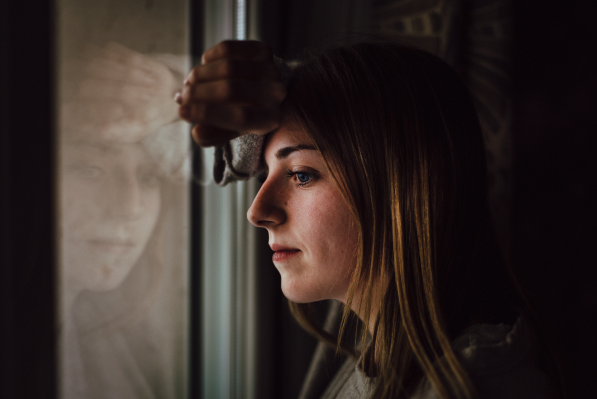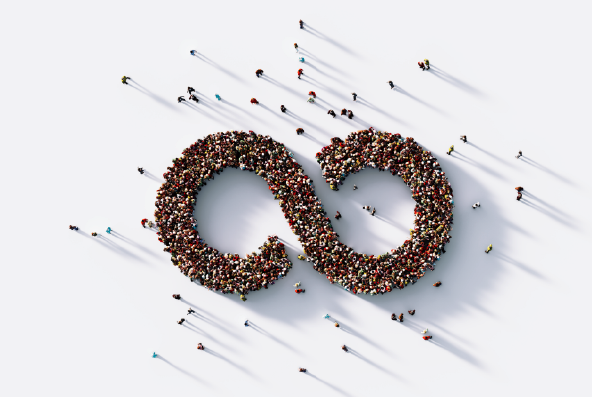We continue our interview with SK, a 3L law student in the greater Boston area. Part 1 of the interview can be found here. She graciously agreed to share some of her story with us and to tell us more about Refuge Recovery, a Buddhist path to addiction recovery.
LCL: What is Refuge Recovery and how did you come to be aware of it? How has Refuge Recovery helped you? Do you apply Buddhist principles in all aspects of your life? How have Buddhist principles influenced your life in general, your experience of law school, your future goals as a lawyer?
SK: Refuge Recovery is a Buddhist-based approach to recovery from addiction, founded by a man named Noah Levine*. [*Noah Levine is under investigation for sexual misconduct. Read further at the bottom of this post.] There are meetings all over the U.S. and the world. It’s open to anyone, at any stage of dealing with or recovering from any type of addiction, including alcohol, drugs, food, sex, gambling, codependency, shopping, you name it. I discovered it through a sort of sister-group called Dharma Punx, which is a Buddhist meditation group that also has meetings in Boston. As a nice twist of fate, my sponsor who I met through twelve step is also involved in Refuge Recovery. I spent my first six months of sobriety crafting my own recovery program which consisted mostly of podcasts, books, yoga and meditation, and a diet overhaul. But I was really craving being able to commiserate with other people about what I was going through, so I began going to twelve step meetings and Refuge Recovery meetings and I am so, so glad I did. I wish I hadn’t waited!
I have found Refuge Recovery to be an incredibly welcoming group of people, where I feel safe to share openly, and I get so much value from hearing other people’s stories of addiction, their experiences surrounding their meditation practices, and ongoing efforts to apply the principles of Buddhism in their lives. I’ve been practicing yoga for a while, so Buddhist principles and the Eastern way of thinking really resonate with me. But Buddhism is not a religion, it is just an approach to life and a way of living that the Buddha discovered can really reduce the amount of suffering someone experiences. In Refuge meetings, we read through the Refuge Recovery book, written by Noah Levine, which goes through the eight-fold path of Buddhism, viewed through the lens of healing from addiction. It teaches us how to relate to our minds, and how to view our cravings to seek pleasure, avoid pain, and control our experiences. At bottom, addiction is really a self-protective human instinct: to avoid pain and to feel good, taken to an extreme. Our behaviors may look different on the outside but I think the suffering it causes us to experience is universal. I’ve heard the saying “Pain is pain is pain.”
I am so glad to have found Refuge Recovery, that I can go to meetings that continuously remind me, “hey you’re human and life can be really tough—why don’t you try these things, to see if you can get a little bit of relief from the madness?” The main focus of the Buddha’s teachings is meditation, that if you can learn to control your mind, you can experience true freedom. Buddhism also teaches virtues like forgiveness, compassion, equanimity, and loving-kindness. And the five precepts of Buddhism are to refrain from violence, stealing, lying, sexual misconduct, and consuming intoxicants (i.e., drugs and alcohol) that cloud the mind. These are sometimes called the five renunciations, and they dovetail nicely with someone trying to stop the harmful behaviors that so often accompany addiction.
LCL: If someone wanted to check out a Refuge Recovery meeting, could they simply show up to one? How do you find listings for Refuge Recovery groups? Do people need to be somewhat familiar with Buddhism to benefit from a Refuge Recovery meeting or can a total novice show up to a meeting? Is Refuge Recovery anonymous?
SK: Yes, anyone can just show up to a meeting, whether they are sober, not sober, new to recovery, not new to recovery, interested in stopping their addictive behaviors or not ready to yet, or they just want to learn more about meditation. There are also two other groups under this umbrella founded by Noah Levine: Dharma Punx and Against the Stream, both of which also have meetings in Boston. They are both Buddhist meditation groups, Dharma Punx is peer-led, and Against the Stream is guided by a Buddhist meditation teacher. All of these meetings can be Googled easily, but I’ll just note the Boston-area Refuge Recovery meetings are Wednesday nights at 7:30pm, and a second one just started on Saturday mornings at 11am. Both are held at the Democracy Center in Cambridge, near Harvard Square. Dharma Punx and Against the Stream are not recovery-based, they are just meditation groups, but many people who attend Refuge meetings also attend these groups.
RefugeRecovery.org has all the meetings listed, including online, phone, and recorded options if you can’t make it to a meeting in person. You don’t need to know anything about Buddhism, but every meeting begins with a 20-minute guided meditation. You also don’t need any meditation experience, but I would recommend being open-minded and willing to sit quietly for 20 minutes, without talking or checking your phone. If you can do that, you’re more than halfway there! After the meditation we usually read through a chapter in the Refuge Recovery book, or once a month a speaker shares their story. I haven’t been to any Refuge meetings outside of Boston so their formats might vary slightly, but there will certainly be an opening meditation. Refuge Recovery is anonymous and attendees are reminded not to disclose the identity of anyone there nor what they share. When we introduce ourselves at the start of the meeting it’s with first names only, though some people choose to also identify as an alcoholic, addict, or person in recovery.
LCL: Is Refuge Recovery compatible with other recovery programs such as AA and SMART Recovery or is it a stand-alone approach?
SK: Absolutely, Refuge Recovery can be a supplement to twelve step, SMART recovery, or any other type of recovery program, or it can be used as a stand-alone option. The main benefits I’ve gotten from Refuge are a community of like-minded friends and a consistent meditation practice. I also attend twelve-step meetings. There are people in Refuge meetings who share about their positive experiences with twelve step and some who share about their aversion to or negative experiences with twelve step. All of it is welcome. Noah Levine, the founder and the author of the book, was involved in twelve step for a long time so parts of the Refuge Recovery program draw on similar foundations. Refuge does not have twelve steps to work through, but there is an inventory process, similar to Steps 4 and 5, amends like in Steps 8 and 9, obviously a focus on meditation, as in Step 11, and an overarching philosophy of service and maintaining your sobriety through helping other addicts.
SK interviewed by Shawn Healy, Ph.D.
*NOAH LEVINE is UNDER INVESTIGATION by the Los Angeles Police Department for sexual misconduct. He stepped back from his position as Against The Stream’s president but is still teaching at Refuge Recovery. ATS announced an internal investigation when the allegations were made public but no report has been released. Here’s the most recent update as of August 15, 2018. Massachusetts lawyers and law students can talk to a clinician (confidentially and for free) about finding safe support networks: 617 482 9600.



